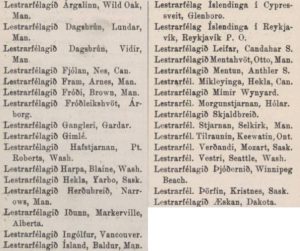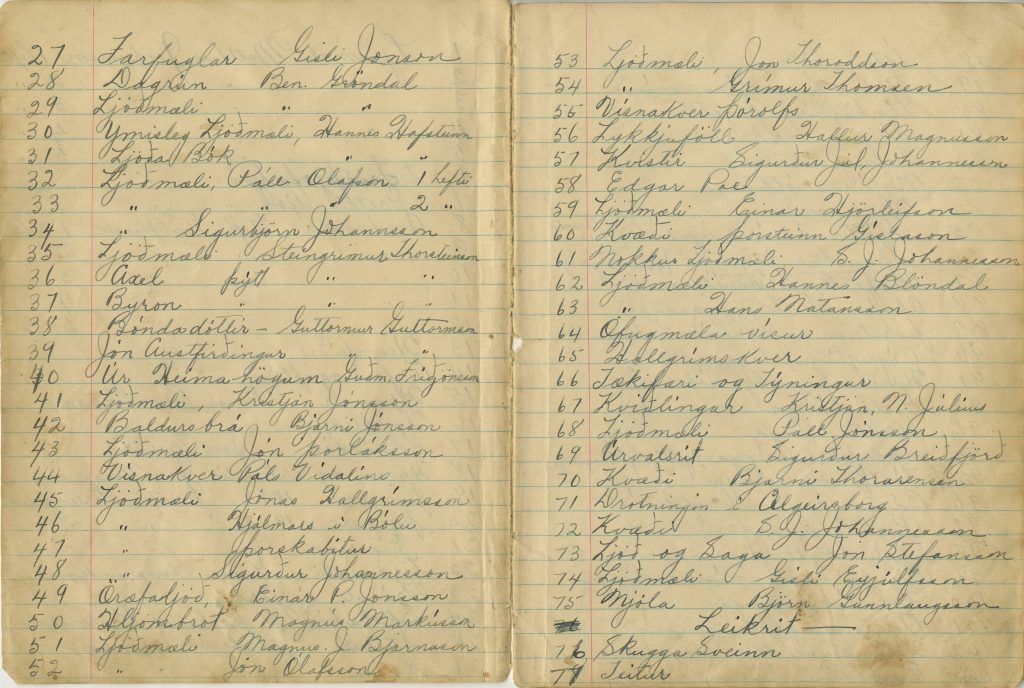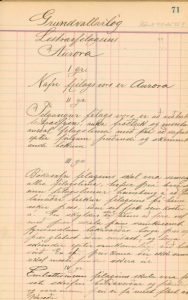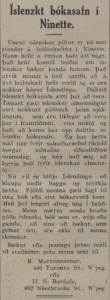Community Lending Libraries
Not all Icelanders in Manitoba had the means or desire to build personal libraries at home. However, many Icelandic communities across the province formed their own reading societies that housed community-based lending libraries. These lending libraries were a crucial lifeline for many Icelanders and helped foster a strong sense of community.
By 1915, there were no less than 19 Icelandic reading societies in rural communities in Manitoba. These societies typically started with a donation from an individual or a group. Fróðleikshvöt, for example, was a reading society established in the community of Arborg, Manitoba in March 1908 with a gift of $14 from the local Icelandic Ladies Aid Society.
Fróðleikshvöt’s lending library, like those of other Icelandic reading societies, expanded over the years and rotated between members’ homes. The woman of the house would typically work as librarian. She also served coffee and refreshments, any time of the day, when folks came by for books. Societies like Fróðleikshvöt often did more than just managing the library. They also organized concerts and plays to raise money to acquire additional books.
After 1941, the local chapter of the Icelandic National League assumed responsibility and care for Fróðleikshvöt’s library. After a new chapter of the Evergreen Regional Library was set up in the old railway station in Arborg in 1975, the library was moved to a special location on the new library’s second floor. The Gimli Reading Society shared a similar fate. In 1967, the society offered its entire collection to the Gimli library where it now forms the “Gimli Icelandic Collection.”
In Winnipeg, the Icelandic Progressive Society established the city’s first Icelandic library. By the early 1880s, it was housed in the society’s hall on what is now Elgin Avenue. Winnipeg’s Jon Bjarnason Academy, the first and only Icelandic-language high school in North America, also housed a library. The Academy and their library were first located at 720 Beverly Street before moving to their own building on 652 Home Street in 1923.
Hrund Skulason recalls how local theatre helped support the Geysir Icelandic community library. Enjoy this audio clip with an English transcript.
Another remarkable Icelandic library was established in the rural community of Ninette. The Ninette Sanatorium, or “San,” for the treatment of people with tuberculosis opened in 1910. Over the summer of 1913, Runólfur Marteinsson of Winnipeg ran a campaign through the newspaper Heimsrkingla to establish an Icelandic library at the San. By September, Runólfur collected nearly $60 and numerous books to send to the Ninette San. Thanks to his efforts, even Icelanders staying in the San had access to Icelandic reading material.






